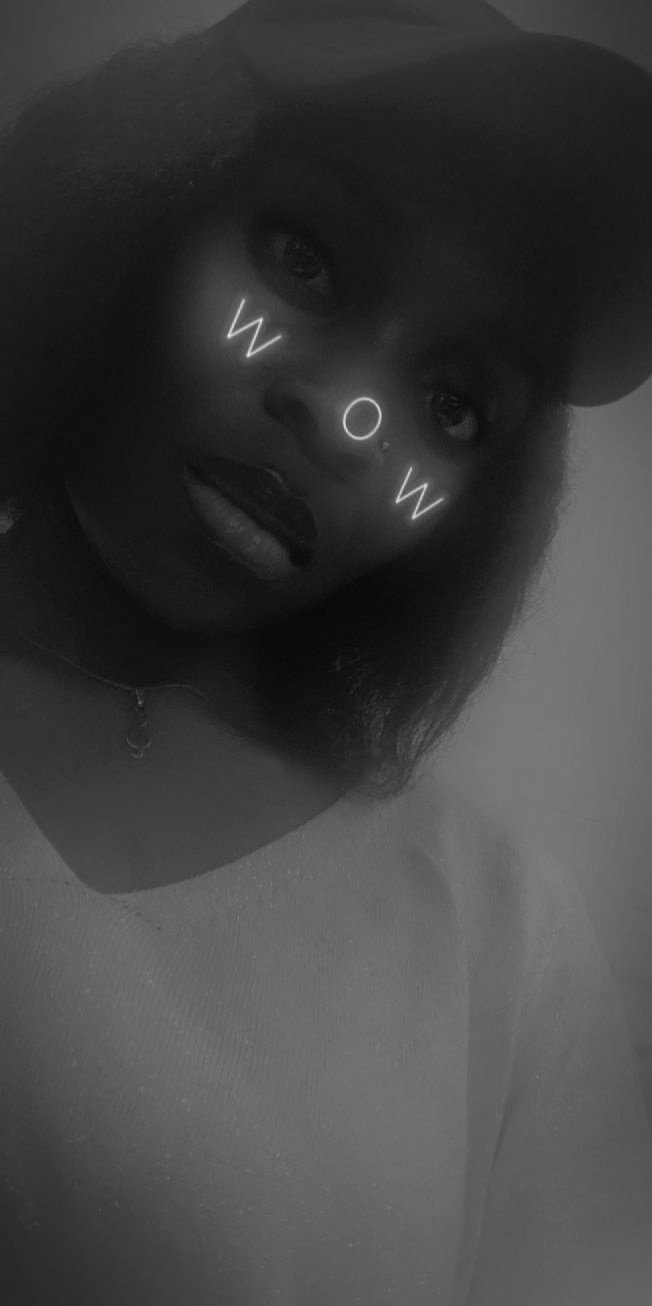I try very hard to steer clear of controversial topics, but if we shy away from talking about these things, then who will talk about them?
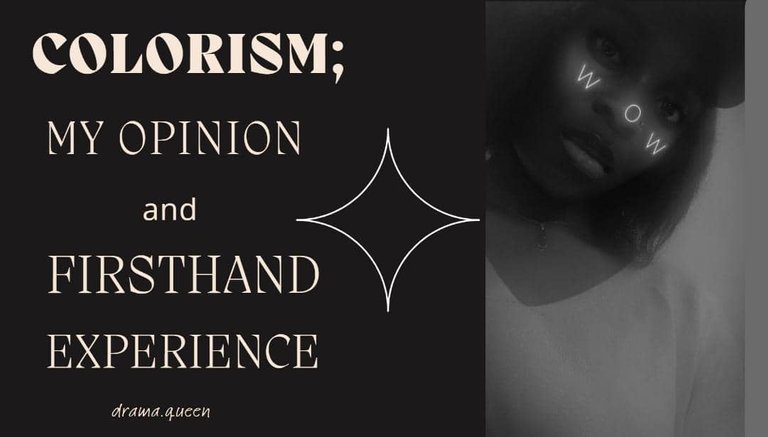
In the Beginning,
Biases and discrimination come in many forms - from systemic and structural biases to institutionalized biases and beyond. Some common examples include racism, tribalism, and misogyny.
However, colorism is one topic that gets talked about the least. Although, it has recently crept its way to the spotlight slowly, and I am glad people are talking more about it now. It is one topic I have always wanted to write and rant about.

Hear me out😌
Black immigrants often share their unique experiences of being black immigrants in the West. Many of them report not realizing they were black until they arrived in Western countries, which sheds light on the pervasiveness of racism. While colorism is a related issue, it differs slightly in its manifestations.
Certainly,you are aware of your own skin shade, but sometimes people just can't resist piping up and implying that being far from dark is the way to go when it comes to beauty standards.
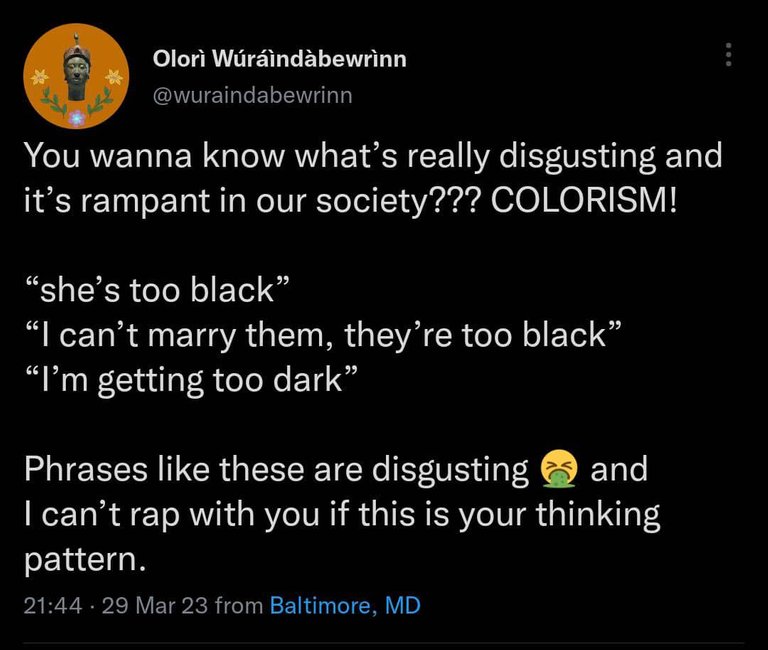
I really did not pay attention to colorism as a child. But growing up and looking back, as a dark skinned girl. I can't explain how I did not lose confidence in my beauty.
I really debated writing about this, because I thought I wouldn't want anyone to tell me that I am projecting my insecurity. In fact, if I were to list my insecurities, not a single physical attribute, including my skin color - would make the cut. (Someone actually accused me of projecting once in a conversation, but they were way off base.)
I have a projection:
Colorism is a manifestation of internalised white supremacy.
Perhaps our internalized white supremacy is as result of the historical notion that white skin is superior. At its core, colorism is rooted in the concept of white supremacy, which asserts that whiteness is the standard of beauty, intelligence, and overall worth. I believe this has led to the devaluation and marginalization of individuals with darker skin tones - a phenomenon that is pervasive not only in Western societies, but even in many cultures around the world, including Nigeria.
Firsthand Experience
- It's frustrating that when I search for anything on the internet that requires images of people, such as clothing or hairstyles, or even when I search for something specific like "red scratch on my stomach", google presents me with images of stomach of lighter-skinned individuals.
It's a stark reminder of the prevalence of colorism and the way it seeps into every aspect of our lives

- I was chatting with a friend the other day, and out of the blue, she started talking about how lucky she was to have a great body. Apparently, she thinks her dark skin tone isn't attractive, and the only reason guys pay her any attention is because of her curves. I mean, this girl is smart as a whip, so it was pretty disappointing to hear her put herself down like that. But it just goes to show how deep-seated colorism can be, even for the brightest bulbs among us.
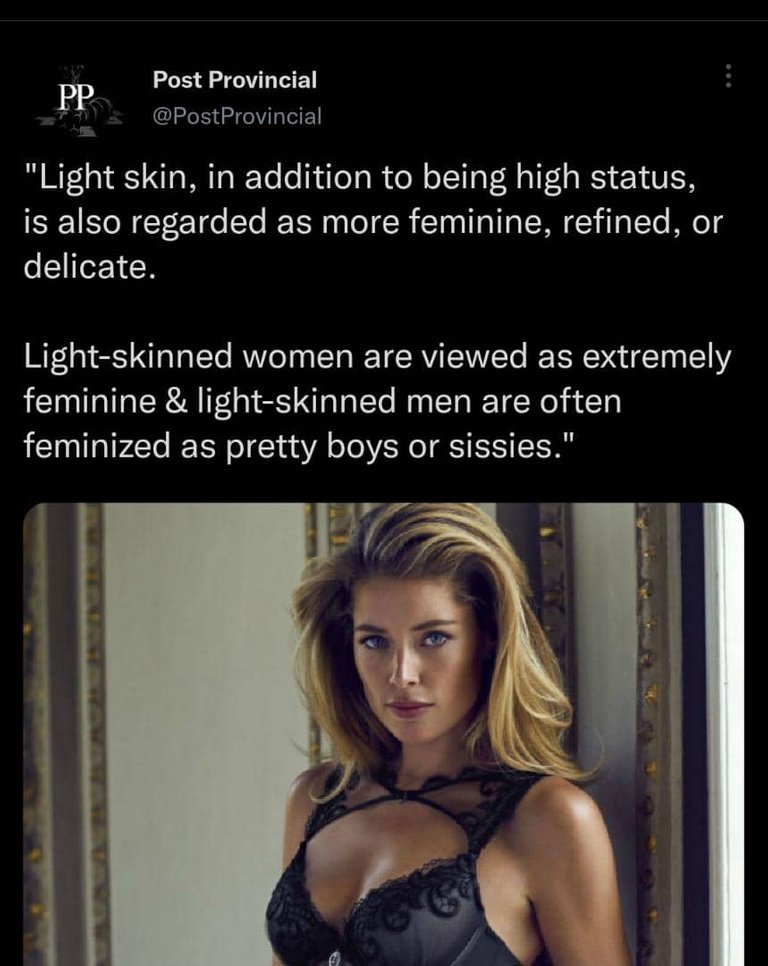
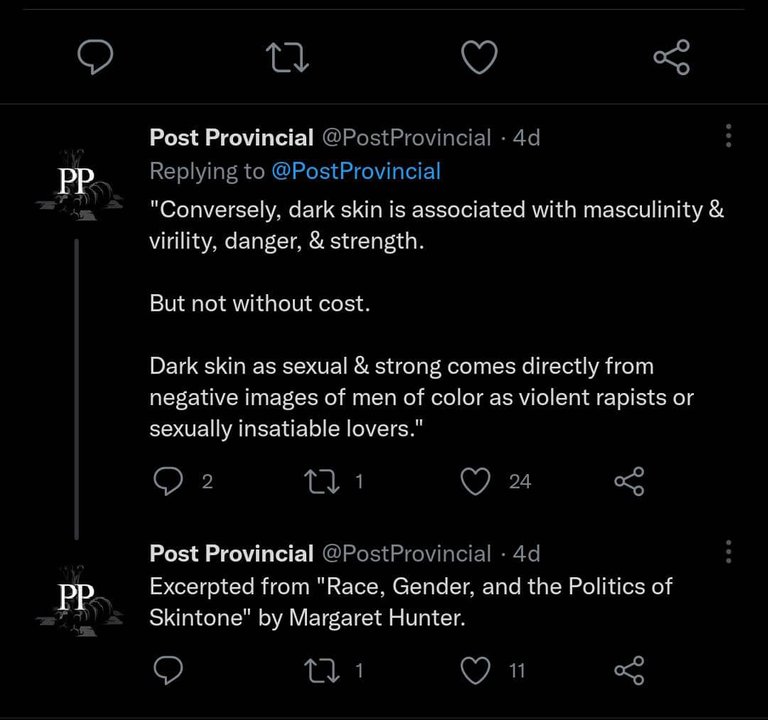
- Many girls, including close friends, use skin lightening products to maintain a lighter skin tone. When their skin darkens, they feel less attractive. It's a sad reality that lighter skin is often seen as more desirable, even at the expense of health and self-esteem.

- In industries such as fashion, movies, and showbiz, the definition of beauty is largely shaped by societal norms and consumer preferences. Unfortunately, this often means that individuals with lighter skin tones are perceived as more attractive and are given preference for roles or opportunities. This is a reflection of a larger social construct that values Eurocentric features and places lighter skin tones on a pedestal. It's important to acknowledge and challenge these biases and strive towards greater inclusivity and diversity in all aspects of society.
Now,
I could go on and on, ranting, and trying to create more awareness surrounding colorism. However, until we acknowledge it's existence and begin to make active efforts towards inclusivity and diversity, colorism won't stop being an issue.
In conclusion, I would like to end this writing with a couple of questions.
How do you think colorism can be eradicated?
To what extent is colorism considered a social construct?
I look forward to reading your views and responses. Thank you.
